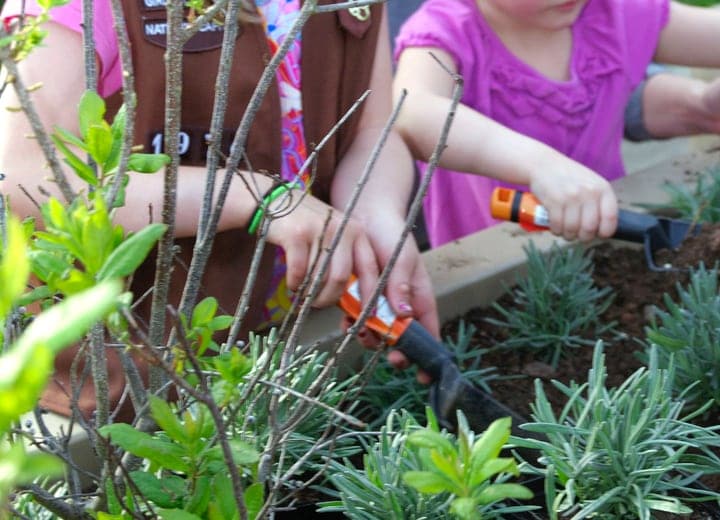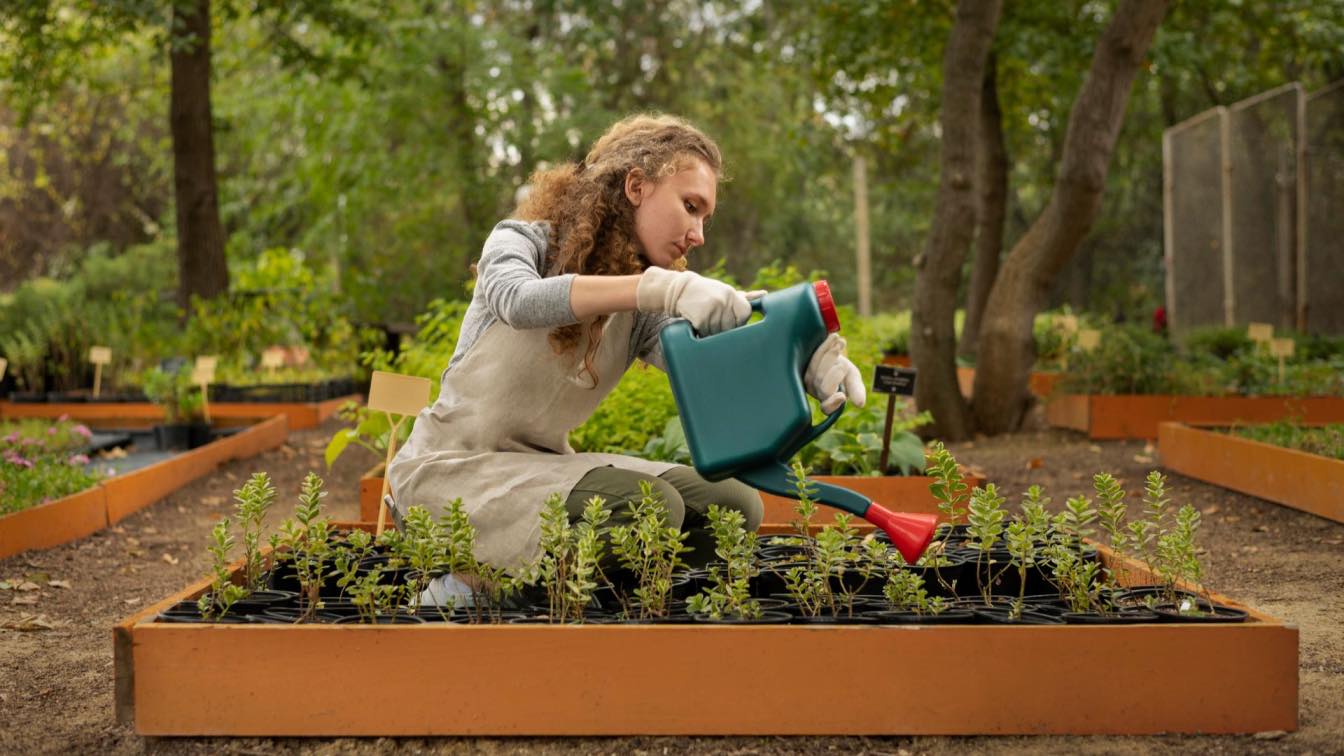In the realm of horticulture, seasonal gardening holds a prominent place. It is a practice that aligns gardening activities with the natural cycles of the earth.
This approach to gardening offers a multitude of benefits. It not only enhances the beauty and productivity of your garden but also contributes to environmental sustainability.
Seasonal gardening can also have a profound impact on your physical and mental well-being. It provides a therapeutic outlet, promotes physical activity, and can even contribute to a healthier diet.
Moreover, it can lead to significant economic advantages. By growing your own produce, you can save on grocery bills and even generate income.
In this article, we delve into the myriad benefits of seasonal gardening. We aim to provide you with a comprehensive understanding of its importance and inspire you to embrace this practice in your own garden.
Understanding Seasonal Gardening
Seasonal gardening is a method of gardening that aligns with the natural rhythms of the earth. It involves planting, nurturing, and harvesting plants according to their natural growth cycles and the changing seasons.
This approach requires a deep understanding of the plants you are growing. It necessitates knowledge of their preferred growing conditions, their life cycles, and the specific needs they have during different seasons.
Seasonal gardening also involves adapting your garden maintenance practices to the changing seasons. This includes tasks such as soil preparation, watering, pruning, and pest management, which may vary depending on the time of year.
Moreover, seasonal gardening encourages the cultivation of a diverse range of plants. This includes not only a variety of vegetables and fruits but also seasonal flowers and native plants that thrive in your local climate.
By aligning your gardening practices with the natural cycles of the earth, you can create a vibrant, productive, and sustainable garden. This approach not only benefits you and your garden but also contributes to the health of the broader ecosystem.
Environmental Advantages of Seasonal Gardening
Seasonal gardening offers numerous environmental benefits. It promotes biodiversity by encouraging the growth of a wide variety of plants, which in turn supports a diverse range of insects, birds, and other wildlife.
This method of gardening also contributes to soil health. By rotating crops and planting cover crops in the off-season, you can help to replenish nutrients in the soil and prevent erosion.
Furthermore, seasonal gardening can help to reduce your carbon footprint. This is because it involves growing your own food locally, which reduces the need for long-distance transportation and the associated greenhouse gas emissions.
Here are some key environmental benefits of seasonal gardening:
- Promotes biodiversity
- Enhances soil health
- Reduces carbon footprint
Promoting Biodiversity and Soil Health
Biodiversity is crucial for a healthy ecosystem. A diverse garden attracts a variety of pollinators, beneficial insects, and birds, which contribute to the overall health and productivity of your garden.
In addition, seasonal gardening practices such as crop rotation and cover cropping can significantly improve soil health. These practices help to replenish nutrients in the soil, prevent soil erosion, and suppress weeds.
By promoting biodiversity and soil health, seasonal gardening contributes to the resilience and sustainability of our ecosystems.
Reducing Carbon Footprint
Seasonal gardening can also help to reduce your carbon footprint. By growing your own food, you can reduce the need for long-distance transportation of produce, which is a significant source of greenhouse gas emissions.
Moreover, seasonal gardening often involves organic practices, which avoid the use of synthetic fertilizers and pesticides. These chemicals are energy-intensive to produce and can contribute to greenhouse gas emissions.
Therefore, by practicing seasonal gardening, you can contribute to the fight against climate change.
Economic Benefits of Seasonal Gardening
Seasonal gardening can provide significant economic benefits. One of the most direct advantages is the cost savings from growing your own produce.
When you cultivate your own fruits, vegetables, and herbs, you can significantly reduce your grocery bills. Moreover, seasonal gardening allows you to enjoy fresh, high-quality produce that is often more nutritious and flavorful than store-bought alternatives.
In addition, by growing your own food, you can become more self-sufficient and less reliant on the global food system, which can be vulnerable to disruptions.
Cost Savings and Local Food Systems
The cost savings from seasonal gardening can be substantial. By growing your own produce, you can avoid the high prices of organic or specialty items at the grocery store.
Moreover, seasonal gardening can contribute to local food systems. When you grow more food than you can consume, you can share or sell your surplus to neighbors, contributing to local food security and community resilience.
In this way, seasonal gardening not only benefits individual gardeners but also supports the broader community and local economy.
Health Benefits of Seasonal Gardening
Seasonal gardening offers numerous health benefits. Engaging in regular gardening activities can provide a form of moderate-intensity exercise, contributing to physical fitness and overall health.
Moreover, spending time outdoors in the garden can increase exposure to sunlight, which aids in the body’s production of vitamin D. This essential nutrient supports bone health and immune function.
Mental and Physical Well-being
Beyond the physical benefits, seasonal gardening can also contribute to mental well-being. The therapeutic nature of gardening activities can help reduce stress, improve mood, and promote relaxation.
Furthermore, the sense of accomplishment from growing your own food and flowers can boost self-esteem and overall life satisfaction. In this way, seasonal gardening can enhance both physical and mental health, contributing to a holistic sense of well-being.
Finally, the act of nurturing plants and witnessing their growth can foster a deeper connection with nature, promoting mindfulness and a sense of peace.
Seasonal Gardening and Garden Maintenance
Seasonal gardening can significantly impact garden maintenance. By aligning gardening practices with natural cycles, gardeners can reduce the need for artificial inputs such as fertilizers and pesticides.
Moreover, understanding the specific needs of plants during different seasons can help optimize their growth and health. This can lead to a more vibrant and productive garden, enhancing its aesthetic appeal and yield.
Finally, seasonal gardening can help manage pests and diseases that may affect the garden. By observing seasonal changes, gardeners can anticipate potential issues and address them proactively.
Plant Hardiness and Spring Planting
Understanding plant hardiness zones is crucial for successful seasonal gardening. These zones provide a guide for the types of plants that can thrive in a particular region, based on its climate.
Spring planting is a key aspect of seasonal gardening. It involves selecting the right plants for the season and preparing the soil to ensure optimal growth.
Moreover, spring planting can set the stage for a productive growing season. By starting with healthy, well-nourished plants, gardeners can look forward to a bountiful harvest in the summer and fall.
Fall Gardening and Preparing for Dormancy
Fall gardening involves activities such as planting for winter harvests and preparing the garden for dormancy. These tasks are essential for maintaining the health and productivity of the garden throughout the year.
Moreover, fall is an ideal time to amend the soil and prepare it for the next growing season. This can involve adding compost or other organic matter to improve soil fertility.
Finally, fall gardening can include tasks such as pruning and deadheading, which can enhance plant health and aesthetics. By maintaining the garden in the fall, gardeners can ensure a successful start to the next growing season.
Conclusion: The Holistic Impact of Seasonal Gardening
Seasonal gardening offers a holistic approach to horticulture. It aligns gardening practices with natural cycles, promoting environmental sustainability, economic efficiency, and personal well-being.
Moreover, seasonal gardening fosters a deeper connection with nature. It encourages observation and understanding of the natural world, enhancing our appreciation for its rhythms and cycles.
In conclusion, the benefits of seasonal gardening extend beyond the garden itself. It contributes to a sustainable lifestyle, promotes health and wellness, and fosters a sense of community. By embracing seasonal gardening, we can cultivate not only plants but also a deeper respect for our environment.







